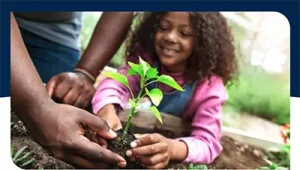 What can be done to reduce violence in communities? One recent trend to combat community-wide violence is the creation of urban green spaces.
What can be done to reduce violence in communities? One recent trend to combat community-wide violence is the creation of urban green spaces.
Violence in communities may be experienced through bullying, fights, shootings, and other acts of aggression, leading to a host of mental, physical, and social health problems for community members.
Understanding the Risk Factors for Community Violence
Living in a community afflicted by violence is associated with relationship troubles and poor mental and physical health due to a lack of access to safe spaces for outdoor activities.
Witnessing neighborhood or community violence is associated with anxiety, depression, and even post-traumatic stress disorder. In addition to inciting fear and anxiety among community members, violence in communities can diminish safe spaces for outdoor recreation, which limits community members’ access to safe opportunities for outdoor physical activity. These barriers to participating in physical activity may increase the risk of obesity and other diseases associated with sedentary behavior.
Green Space Reduces Community Violence
What can be done to reduce violence in communities? One recent trend to combat community-wide violence is the creation of urban green spaces.
“Green space” includes parks, trails, and community areas that connect residents with nature. Maintaining existing green spaces and greening vacant lots can transform the physical environment from one that promotes crime and fear to one that may reduce crime and improve perceptions of safety.
Not only can greening vacant lots reduce violent crime, anxieties, and fears, it can also create a space for communities to get together and feel safe while outdoors. The increased safety associated with greening vacant lots can also create spaces for outdoor activities, which could reduce the risk of heart disease and other noncommunicable diseases.
Click here to view the report.




